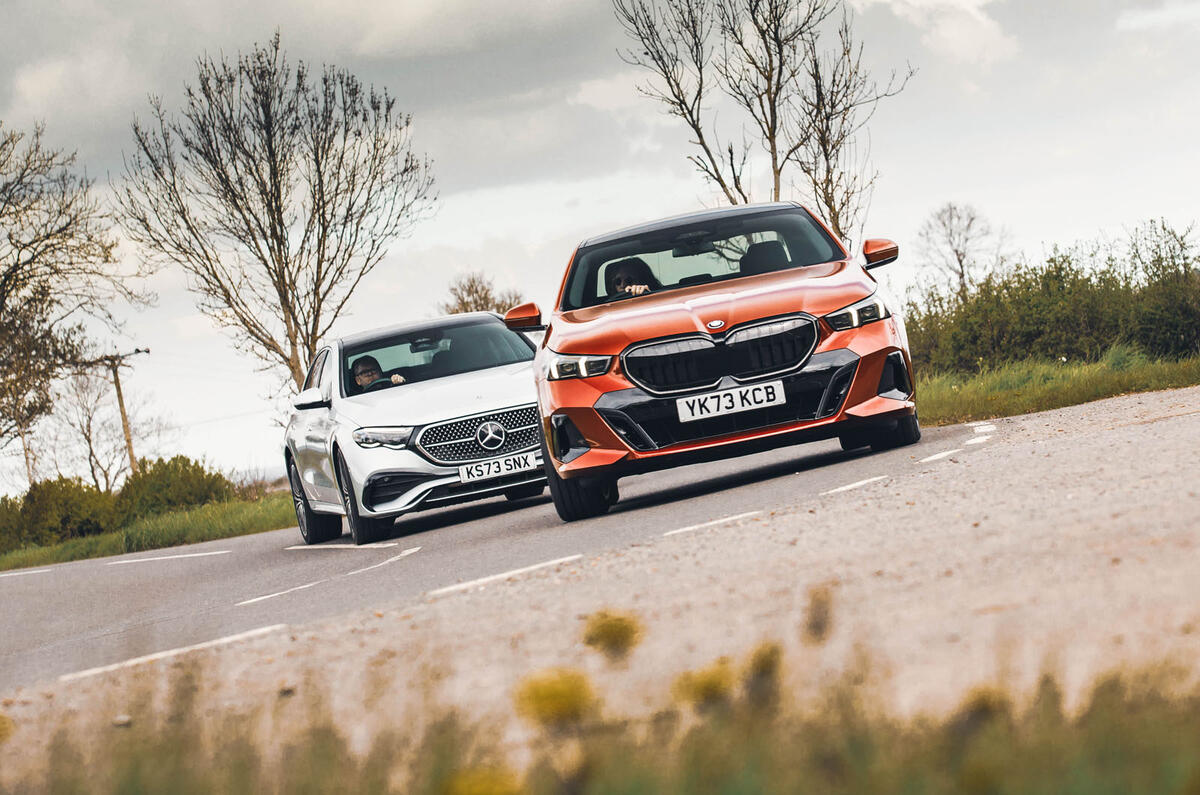Mercedes-Benz is in advanced talks about potentially using BMW's four-cylinder petrol engines for a wide range of future cars, as part of a radical rethink of its ICE strategy prompted by slower-than-expected take-up of its EVs.
A Mercedes source has told Autocar the two firms are already at high level of planning and negotiations, and an announcement on whether it will go ahead expected before the end of the year. Autocar has approached BMW for comment.
The potential tie-up – first uncovered by Germany's Manager Magazin – would have BMW providing a new generation of petrol engines for use in Mercedes models ranging from the CLA through the GLA, GLB, C-Class, E-Class and GLC to the upcoming 'Little G'.
The agreement between the rival companies is being framed as a “strategic step to cut development costs”.
For Mercedes, it would secure a Euro 7-compliant engine supply – crucial to the continuation of ICE models – while helping it to expand plug-in hybrid offerings without further heavy investment in four-cylinder engine development.
The move comes as Mercedes phases in its new turbocharged 1.5-litre four-cylinder M252 engine, developed in-house in Germany but produced in China by Horse, a joint venture between Geely and Renault.
Already offered in the new CLA, the M252 engine is offered with three outputs – 136bhp, 163bhp and 190bhp – and combined with a an eight-speed dual-clutch automatic gearbox housing a 27bhp electric motor.
However, insiders note that while the M252 is well suited to mild-hybrid applications, it isn't currently engineered for PHEV or range-extender use – a gap that a BMW-supplied engine could potentially fill.
Said engine is rumoured to be a turbocharged 2.0-litre derivative of the four-cylinder B48 engine, which is used in almost every current BMW and Mini model line.
Likely to be produced at a factory in Steyr, Austria, the B48 is claimed to offer greater scope than the M252, as it's packaged for both longitudinal and transverse layouts, giving Mercedes more flexibility across its both its compact and mid-sized models.
The proposed partnership could also extend to global production hubs, including a potential shared engine plant in the US to sidestep rising import tariffs.
Should the deal go ahead, it would mark a historic first: two of Germany’s luxury car makers sharing engines and potentially even gearboxes in the longer term.




Join the debate
Add your comment
Is this because Renault are going to stop supplying Mercedes with the 4-cylinder ICE units that they currently use??
Another nail in the coffin of the once-great European car industry.
Mercedes are already in partnership with Geely/Volvo. Volvo have just announced a new 1.5 Turbo petrol PHEV in the XC70 that is due to be released shortly, with with allegedly electric range of 124miles, surely that would make more sense than working with a German rival.